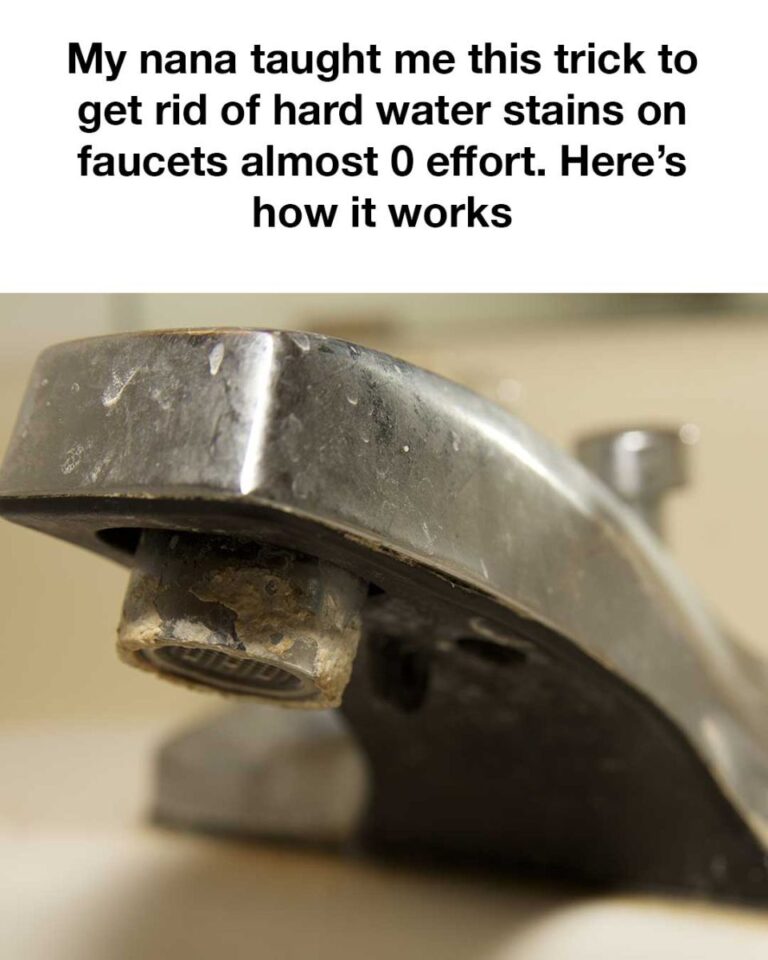Prepare the Vinegar Solution:
Fill the small plastic bag with enough white vinegar to submerge the faucet’s spout and any other areas with hard water stains.
Secure the Bag to the Faucet:
Place the bag filled with vinegar over the faucet’s spout, ensuring that all stained areas are submerged in the vinegar. Use a rubber band or hair tie to secure the bag in place. Make sure it’s snug enough that the bag won’t slip off, but not too tight that it damages the faucet.
Let It Soak:
This is where the “almost zero effort” part comes in. Let the vinegar do its magic by leaving the bag in place for about an hour. For tougher stains, you might want to let it soak longer, even overnight if necessary. The acidic properties of the vinegar will dissolve the mineral deposits, making them easy to wipe away.
Remove the Bag and Wipe Away the Stains:
After soaking, remove the bag and discard the vinegar. Take a soft cloth or sponge and gently wipe away the stains. You’ll notice that the hard water deposits come off easily without the need for scrubbing.
Rinse and Dry:
Rinse the faucet with water to remove any remaining vinegar, and then dry it with a clean cloth to prevent any new water spots from forming.
Why This Method Works So Well
The beauty of this trick lies in its simplicity and effectiveness. The vinegar’s acidity breaks down the mineral buildup without damaging your faucet’s finish. Unlike abrasive cleaners, which can scratch and dull surfaces, vinegar is gentle yet powerful. Additionally, soaking allows the vinegar to penetrate and dissolve the stains thoroughly, minimizing the effort needed to clean them off.
Additional Tips and Tricks
For Stubborn Stains:
If the stains are particularly stubborn, you can sprinkle a little baking soda on the faucet before wiping it down after soaking. Baking soda acts as a mild abrasive, providing extra scrubbing power without scratching the surface.
Prevent Future Stains:
To prevent hard water stains from forming in the first place, make it a habit to wipe down your faucets with a dry cloth after each use. This simple step will reduce the buildup of mineral deposits over time.
Use Lemon Juice for a Fresh Scent:
If you prefer a fresh citrus scent, you can add a few drops of lemon juice to the vinegar before soaking. Lemon juice also has acidic properties that help break down mineral deposits.
A Cost-Effective, Eco-Friendly Solution
What makes Nana’s trick so wonderful is that it’s not only effective but also cost-efficient and environmentally friendly. You don’t need to buy expensive, chemical-laden cleaners to keep your faucets looking new. A little vinegar and some time are all it takes to achieve a sparkling, stain-free finish.
Hard water stains don’t stand a chance against this simple yet powerful cleaning method. Thanks to my Nana’s tried-and-true trick, you can enjoy clean, shiny faucets with almost no effort. The next time you notice those pesky white deposits on your fixtures, reach for the vinegar and let it work its magic. You’ll be amazed at how easy it is to maintain a spotless bathroom or kitchen without the hassle of strenuous scrubbing. Give it a try, and your faucets will thank you!
